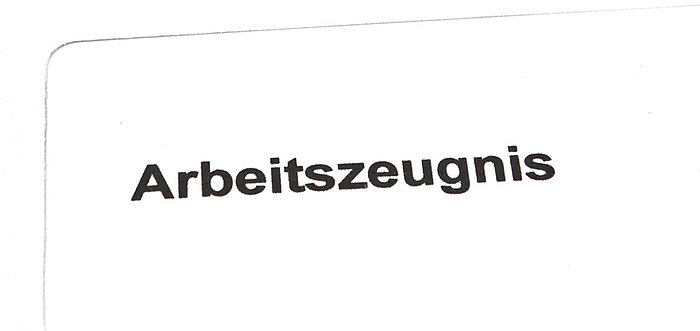Employment reference can mention release as member of the Works Council
Newsletter Employment Law 08/2014
An employee cannot ask the employer to conceal the fact in a qualified employment reference that the employee was released fully from his work duties in the last years of his employment, in order to exercise his office on the Works Council.
The claimant had been employed by the defendant’s company since 1998. Between 2005 and 2010, the claimant was released fully from his professional work as a result of his status as member of the Works Council. Upon ending of the employment relationship, the employer issued him with a qualified reference which included the following wording:
“In the period between […] and the ending of the employment relationship, Mr V. was released from his professional duties due to his membership of the Works Council. His conduct towards superiors and colleagues was appropriate as a rule.”
The claimant demanded complete and final deletion of the passage concerning his release as member of the Works Council as well as replacement of the final sentence of the reference with the following formulation: “His conduct towards superiors and colleagues was impeccable at all times.”
In its judgment dated 17 January 2012, the Court ordered the employer to reformulate the final sentence of the reference, whilst dismissing the remainder of the legal action.
The LAG Cologne upheld this legal interpretation in the 2nd instance. By so doing, it agreed with the prevailing opinion, according to which work for the Works Council, or the mere membership of the Works-Council body, must fundamentally only be mentioned in the employment reference if the employee expressly wishes this. However, this situation must be assessed differently if the person concerned is a member of the Works Council who is released fully from his/her work duties as a result of the duties assumed under the Works Council Formation Act.
In such a case, the LAG Cologne assumes that statements on the performance and conduct when carrying out employment contract duties are not possible as long as the primary employment-contract duties are suspended.
If the employee was released for part of the overall duration of his/her employment relationship due to his/her Works Council activities, the complete concealment of this fact results either in a falsified impression on the part of the neutral reader of the reference contrary to the principle of truthful references, or creates a critical information gap that is ultimately also detrimental to the employee. This is because any such information gap could lead to speculation on the part of the reader of the reference as to what actually happened during the period not mentioned, e.g. long-term illness of the employee or the serving of a prison sentence.
Summary
The judgment of the LAG Cologne must be regarded as correct. It is in line with the previous case law on the mentioning of de-facto periods of absence during the employment relationship. For example, the BAG decided through judgment dated 10 May 2005 (9 AZR 261/04) that, in the case of a cook „employed“ for four years and two months, absence for a child-raising period of almost three years can be mentioned. On the one hand, a reference should be characterized by the principle of favorable consideration, i.e. the employer must not put obstacles in the way of the employee‘s professional advancement. On the other hand, the principle of truthful and complete references applies. Consequently, any extended de-facto interruption must be stated. It is therefore clear that it is not possible to assess the employee‘s work conduct over the period concerned. It cannot then be a matter of the reason for the absence, e.g. parental leave, extended illness or release as member of the Works Council.










